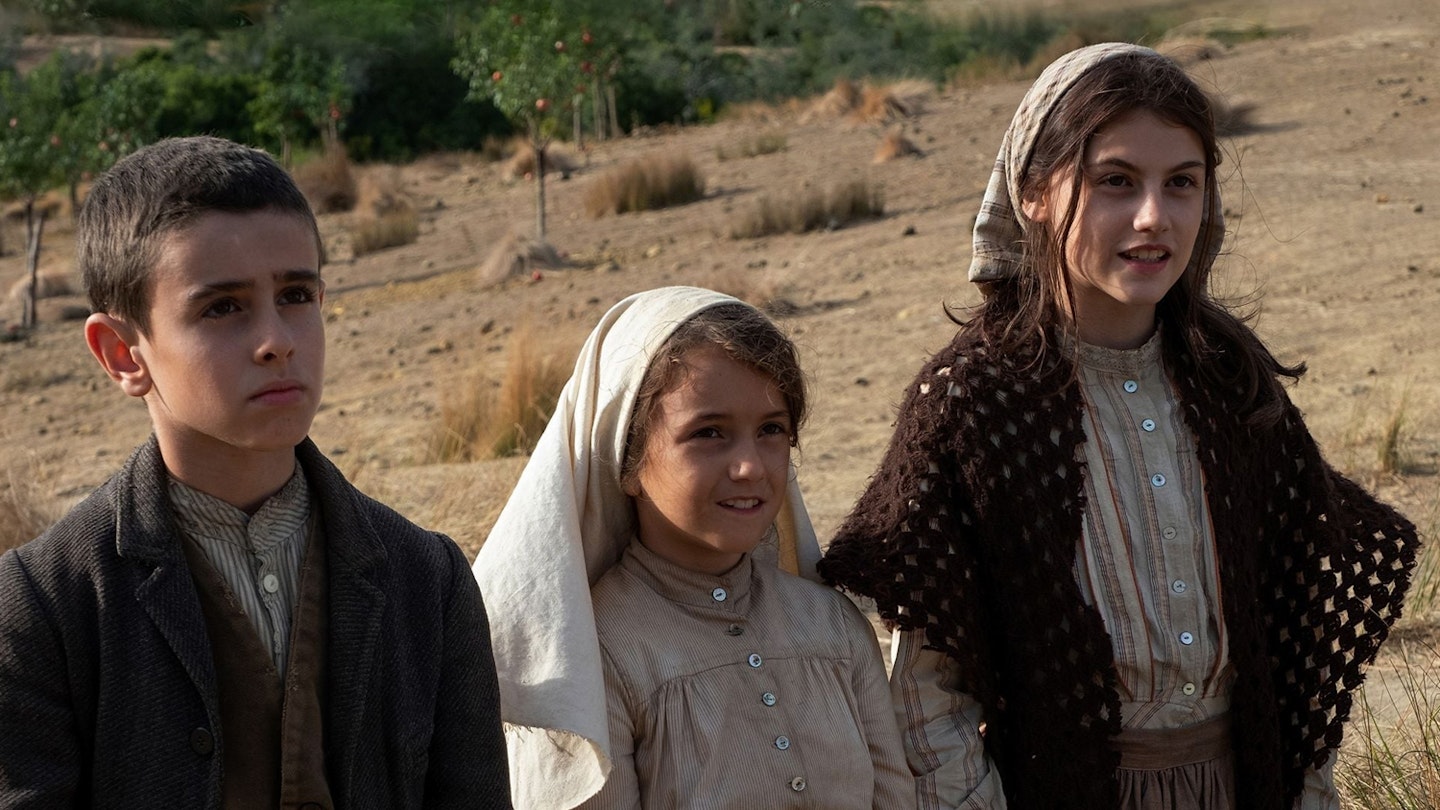Can a child’s faith be trusted? In this drama based on a true story, Sônia Braga plays an ageing nun who believes she was visited by the Virgin Mary as a young girl during World War I, when she was living in Fátima, in rural Portugal. Church and state condemned her testimony and that of her two cousins, although thousands of believers gathered near her home, praying for their own miracle. Accordingly there was a substantial crowd for the so-called Miracle Of The Sun, a solar display that has since been explained as everything from a celestial sign to a symptom of collective eye-strain.
The tone of this film is far too respectful to do justice to Lucia’s story.
Fatima is directed by Marco Pontecorvo (son of Gillo ‘The Battle Of Algiers’ Pontecorvo), whose background is primarily in cinematography, with a handful of directing credits. His cast is international, though the film is in English. Lucia recalls her childhood visions in an interview with a sceptical academic (Harvey Keitel). There are flashpoints of disagreements between the two, but the privacy screen dividing the two actors seems to impede their conversation drastically. And naturally, their dialogue is interrupted by flashbacks.
It’s the events of 1917, rendered in a wishy-washy sepia palette, that make up the bulk of this sombre film, which paints over its most intriguing ideas with a thick coat of gloss. Anglo-Spanish actress Stephanie Gil plays Lucia as an earnest ten-year-old shepherd, illiterate and God-fearing, while Goran Višnjić is unexpectedly sympathetic as the hostile mayor. The tone of this film is far too respectful to do justice to Lucia’s story. Her visions, including one of hell, are presented as fact, and sadly the film is sentimentally attached to the idea of their veracity. Her visions may have provided solace during a difficult time, but this film would be more engaging if it opened itself to a little nagging doubt.
